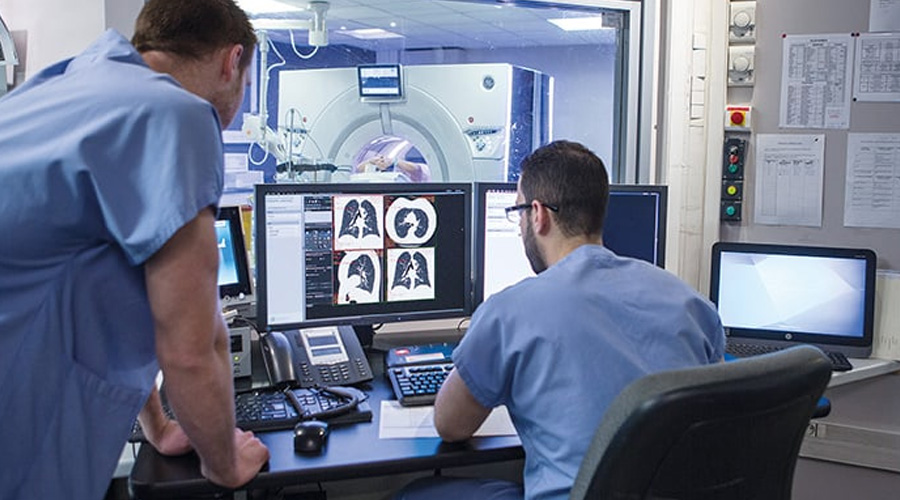
AI-Powered Algorithms Revolutionize Medical Diagnosis and TreatmentAI-Powered Algorithms Revolutionize Medical Diagnosis and Treatment Artificial Intelligence (AI) is rapidly transforming the healthcare landscape, offering unprecedented capabilities to enhance medical diagnosis and treatment. AI-powered algorithms are revolutionizing medicine, enabling more accurate diagnoses, personalized treatment plans, and improved patient outcomes. Enhanced Diagnostic Accuracy: AI algorithms trained on vast medical datasets can identify patterns and anomalies in medical images and data that may escape the notice of human clinicians. This has led to significant advancements in the early detection and diagnosis of diseases such as cancer, Alzheimer’s, and cardiovascular ailments. AI-assisted detection can flag potential health risks and facilitate prompt intervention, potentially saving lives. Personalized Treatment Plans: AI algorithms can analyze individual patient health data, including medical history, genetic information, and lifestyle factors. By correlating this data with vast knowledge bases, AI can generate personalized treatment plans tailored to each patient’s unique needs. This precision medicine approach optimizes treatment efficacy and reduces the risk of adverse effects. Predictive Analytics: Predictive analytics algorithms use historical data and machine learning to forecast disease risks and outcomes. By identifying high-risk individuals, healthcare providers can implement targeted interventions to prevent or mitigate future health issues. This proactive approach to healthcare empowers patients to take control of their health and make informed decisions. Virtual Health Assistants: AI-powered virtual health assistants provide patients with 24/7 access to medical information and support. These assistants can analyze symptoms, provide triage advice, and schedule appointments. By automating routine tasks and providing timely guidance, virtual health assistants enhance patient access to care and reduce the burden on healthcare professionals. Benefits for Patients and Clinicians: The integration of AI algorithms into medical practice offers numerous advantages to both patients and clinicians: * Improved Patient Outcomes: Earlier and more accurate diagnoses, personalized treatments, and risk mitigation strategies lead to better patient outcomes and reduced mortality rates. * Reduced Healthcare Costs: Early detection and targeted interventions can prevent the need for expensive treatments and hospitalization, thereby lowering healthcare expenditure. * Increased Patient Empowerment: AI-powered tools empower patients with information about their health and provide them with a sense of control over their healthcare decisions. * Enhanced Clinical Decision-Making: AI algorithms provide clinicians with evidence-based insights, enabling them to make more informed decisions with greater confidence. Challenges and Ethical Considerations: While AI holds immense potential in medicine, it is not without challenges and ethical considerations: * Data Privacy: Protecting patient data is paramount. AI algorithms must adhere to strict data privacy regulations to safeguard sensitive health information. * Algorithm Bias: AI algorithms can inherit biases from the data on which they are trained. Mitigating algorithmic bias is crucial to ensure fair and equitable outcomes. * Human-Machine Interaction: Balancing the integration of AI with the role of human clinicians is essential. AI should be seen as a complementary tool that supports healthcare professionals, not as a replacement for their expertise. In conclusion, AI-powered algorithms are revolutionizing medical diagnosis and treatment. By leveraging advanced computational capabilities, AI improves diagnostic accuracy, personalizes treatment plans, and empowers patients with knowledge and support. As AI continues to evolve, it holds the promise of transforming healthcare, leading to better patient outcomes, reduced costs, and enhanced clinical decision-making.
Posted inNews